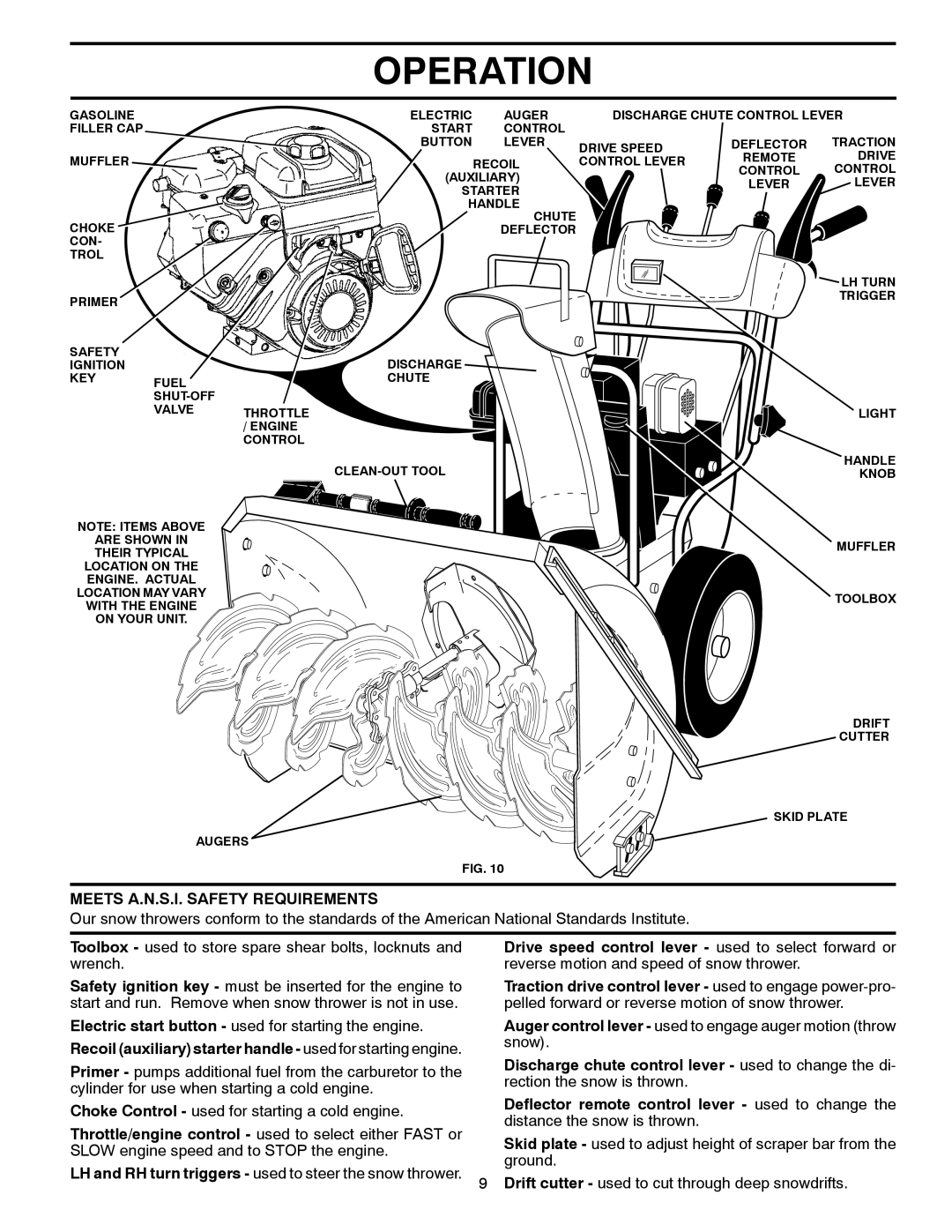
OPERATION
GASOLINE
FILLER CAP
MUFFLER
CHOKE ![]() CON-
CON-
ELECTRIC | AUGER | DISCHARGE CHUTE CONTROL LEVER | ||
START | CONTROL |
|
|
|
BUTTON | LEVER | DRIVE SPEED | DEFLECTOR | TRACTION |
|
| REMOTE | DRIVE | |
| RECOIL | CONTROL LEVER | ||
| CONTROL | CONTROL | ||
(AUXILIARY) |
| |||
| LEVER | LEVER | ||
STARTER |
| |||
|
|
| ||
HANDLE |
|
|
| |
| CHUTE |
|
|
|
| DEFLECTOR |
|
|
|
TROL
PRIMER
SAFETY IGNITION KEY
FUEL
VALVE THROTTLE / ENGINE CONTROL
LH TURN |
TRIGGER |
DISCHARGE
CHUTE
LIGHT
HANDLE KNOB
NOTE: ITEMS ABOVE
ARE SHOWN IN
THEIR TYPICAL
LOCATION ON THE ENGINE. ACTUAL LOCATION MAY VARY WITH THE ENGINE ON YOUR UNIT.
AUGERS
FIG. 10
MUFFLER
TOOLBOX
DRIFT
CUTTER
SKID PLATE
MEETS A.N.S.I. SAFETY REQUIREMENTS
Our snow throwers conform to the standards of the American National Standards Institute.
Toolbox - used to store spare shear bolts, locknuts and wrench.
Safety ignition key - must be inserted for the engine to start and run. Remove when snow thrower is not in use.
Electric start button - used for starting the engine.
Recoil (auxiliary) starter handle - used for starting engine.
Primer - pumps additional fuel from the carburetor to the cylinder for use when starting a cold engine.
Choke Control - used for starting a cold engine.
Throttle/engine control - used to select either FAST or SLOW engine speed and to STOP the engine.
LH and RH turn triggers - used to steer the snow thrower.
Drive speed control lever - used to select forward or reverse motion and speed of snow thrower.
Traction drive control lever - used to engage
Auger control lever - used to engage auger motion (throw snow).
Discharge chute control lever - used to change the di- rection the snow is thrown.
Deflector remote control lever - used to change the distance the snow is thrown.
Skid plate - used to adjust height of scraper bar from the ground.
9 Drift cutter - used to cut through deep snowdrifts.
